Alert 300:
Anticipation of electoral violence in Nigeria
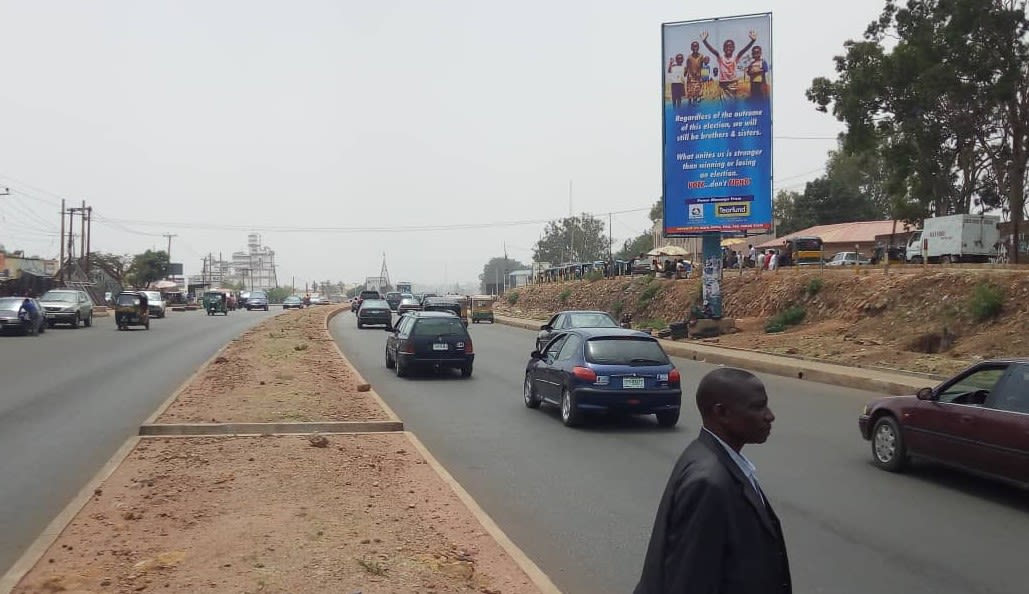
Anticipating conflict as a Start Network niche
The space of forecast-based and anticipatory action is predominantly made up of organisations acting in anticipation of natural disasters or famine. What makes Start Network stand out against other organisations is our ability to also act in anticipation of man-made or conflict-related crises. The way in which Start Network operates through its network of aid agencies enables us to tap into an established operational presence in these highly sensitive contexts, which ensures that information for anticipation programming is readily available and our interventions are highly contextualised.
Since 2017 the anticipation team has successfully implemented 7 anticipatory alerts which are linked to violence, conflict, or displacement. A typical example of one of these alerts is
Alert 300, which was raised in anticipation of electoral violence in Nigeria.
Case example
December 2018 saw a period of strong collaboration amongst member agencies in Nigeria in preparation for the upcoming Nigerian elections which were due to be held in early 2019. This collaboration involved the undertaking of a rapid macro context analysis (GEECAR). It recommended that humanitarian agencies should develop election contingency plans and request funding for anticipated humanitarian response. Following these recommendations, Start Network’s 300th Alert was raised on the 11th February 2019. This alert was raised in anticipation of electoral violence, which historically takes place across Nigeria, both throughout the campaign period and once electoral results are announced. For example, the 2015 elections saw violent clashes which resulted in 58 people killed.
There was a tense political environment leading up to voters going to the ballots on the 16th February. This was due to a predicted close race between President Buhari from the APC party, primarily supported by herding communities, and Atiku Abukbakar from the PDP, supported by farming communities. Additionally, there was an increasing risk that these tensions would worsen the existing inter-communal tensions in the Middle Belt region of Nigeria. The impacts of such episodes of violence could lead to increased displacement in affected states. This in turn, would aggravate food insecurity whilst exacerbating protection concerns for those who had been displaced.
Norwegian Refugee Council (NRC) and Tearfund in consortium with Christian Aid were the Start Network members selected to lead this anticipatory project: NRC was awarded £60,000 and Tearfund £155,000. NRC focused on WASH and shelter activities in Borno State, Magumeri LGA, Konduga LGA (including Barre Camp). This response distributed core relief kits which included emergency shelter, household, and hygiene items to 645 of the most vulnerable households. Tearfund’s project focused on education, protection, and cash activities. This was carried out alongside two local partners in the North, Central, and North East areas of Nigeria. Education activities were implemented pre-, during, and post-elections, which involved conflict sensitivity training sessions and consultative meetings with religious leaders and media organisations. Cash distributions were also implemented to target those most vulnerable.
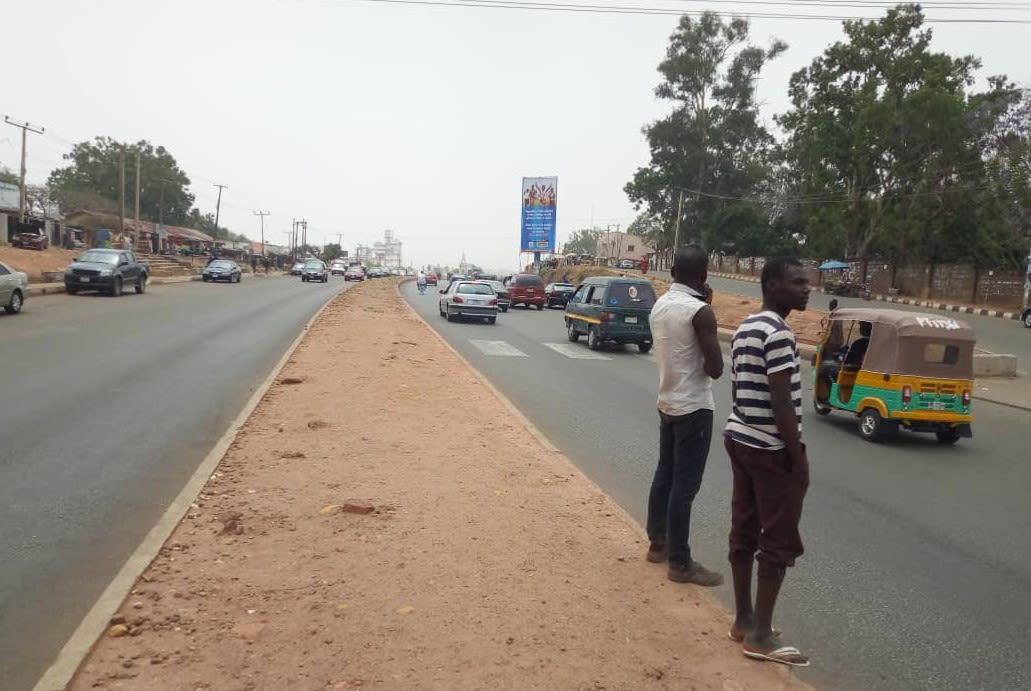
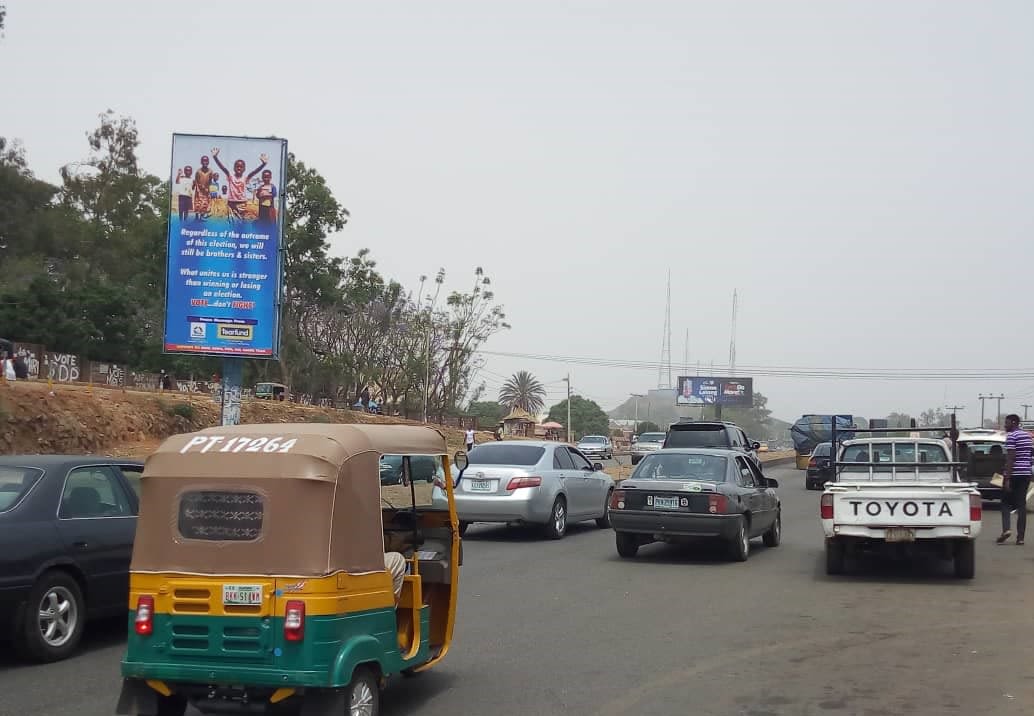
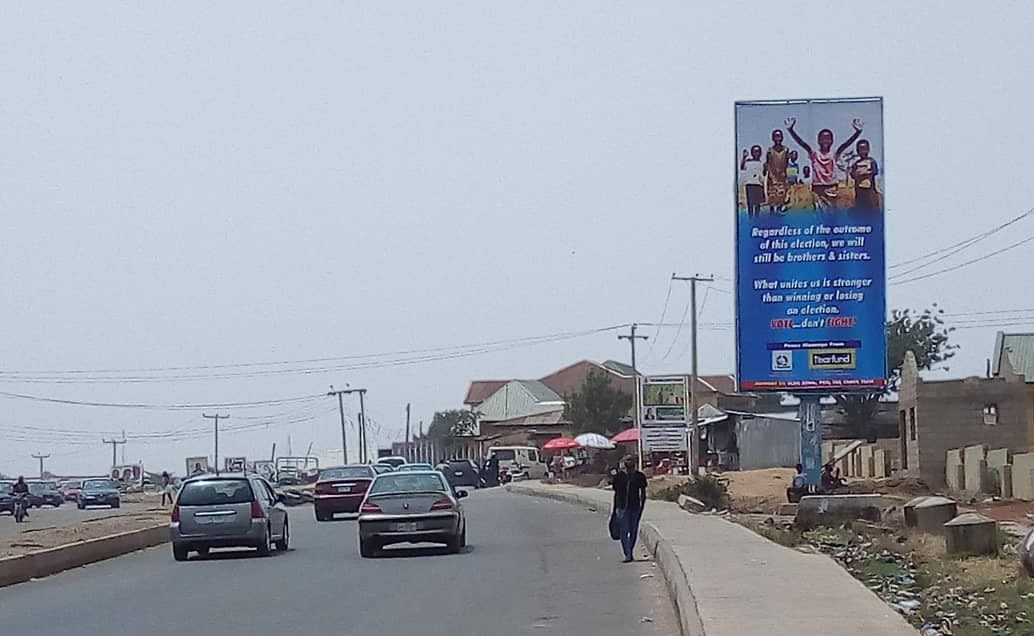
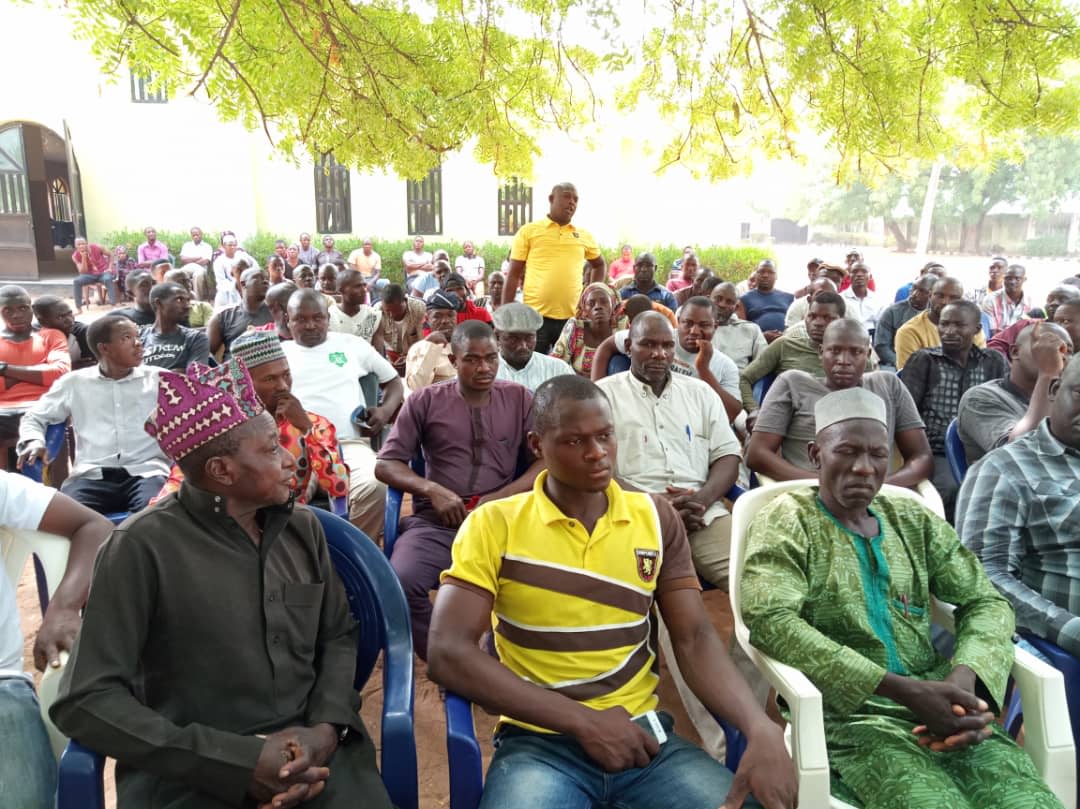
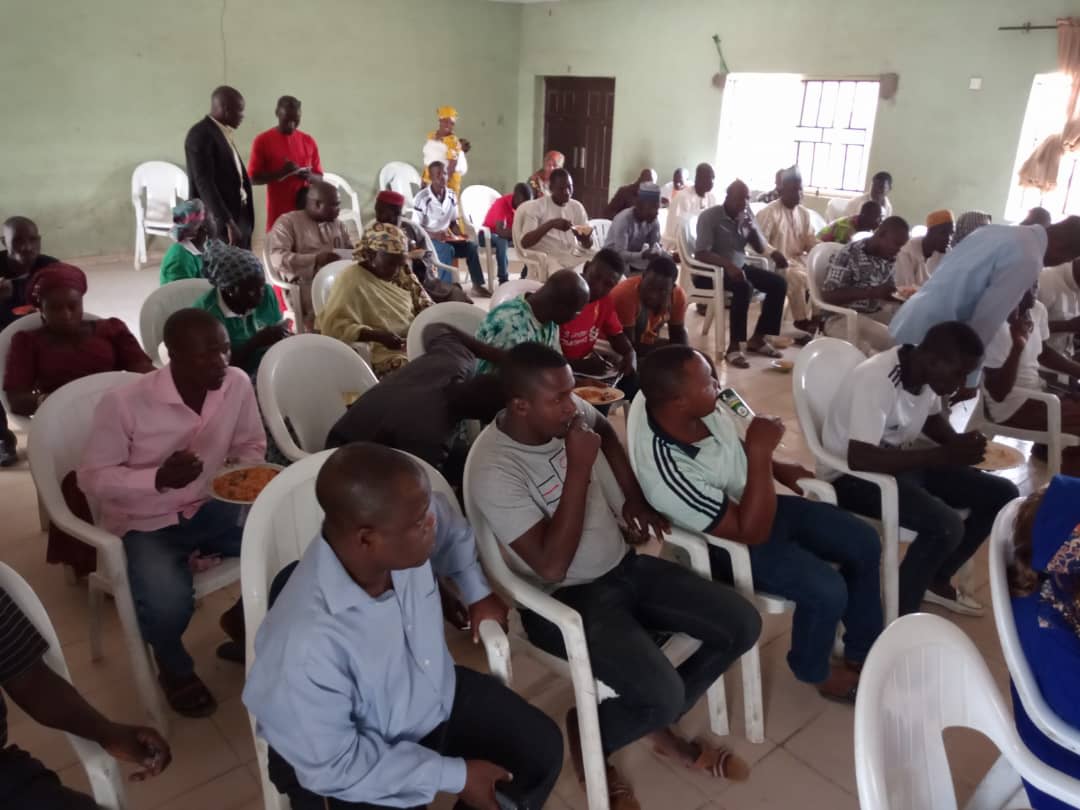
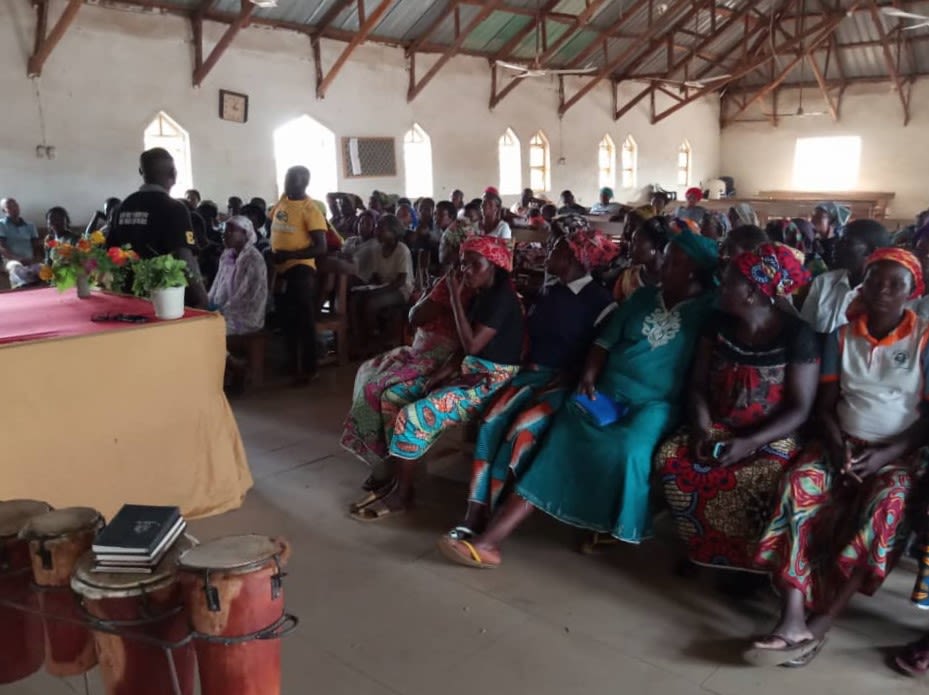
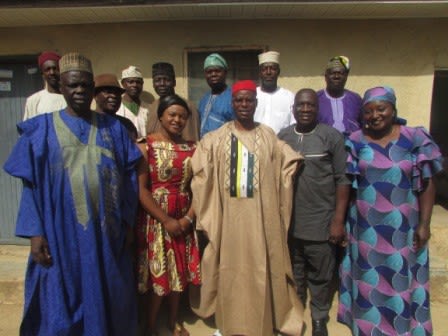
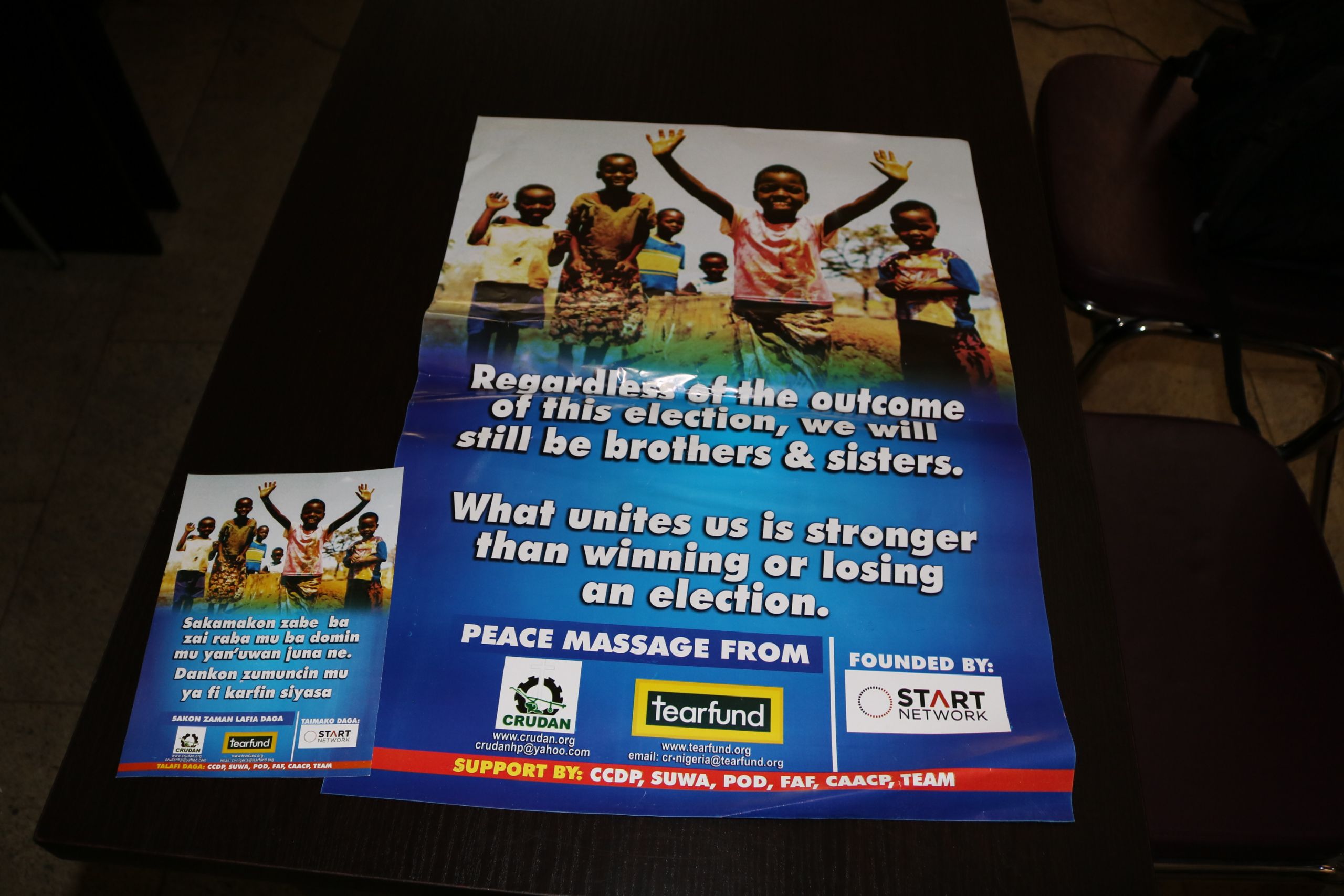
“ The Tearfund t-shirts and caps on peace building were all over the place with both Muslims and Christians wearing them to advocate for peace, this was very helpful. Next time the t-shirts and caps should be produced in large quantity, because those who wear clothing are often able to settle differences between people. Wearing the t-shirts and caps were symbols of peace building. I personally enjoyed the programme because it targeted the youths.”
A Bassa community member who was supported through this anticipatory project
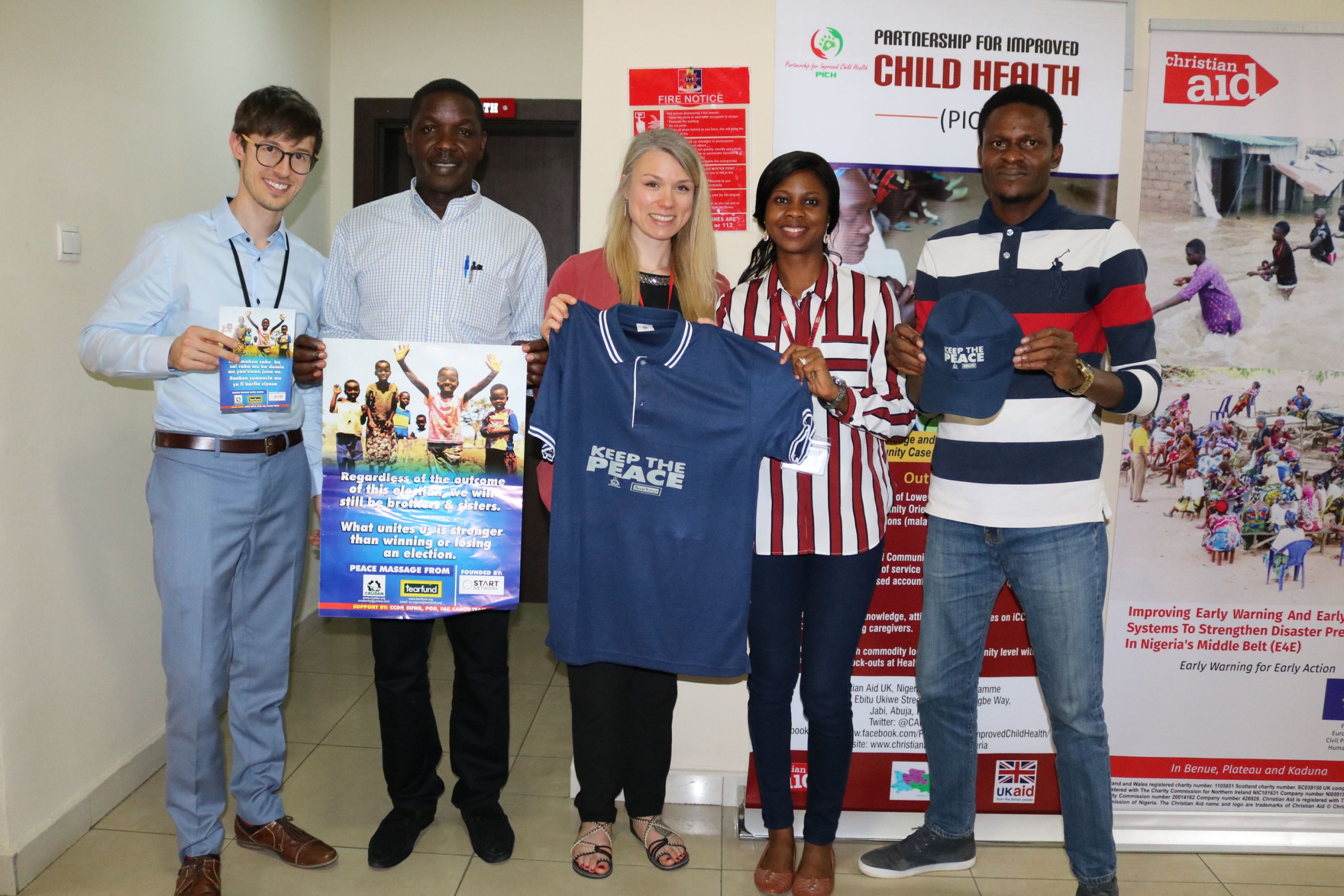
“ One of the most successful aspects of the programme were the advocacy visits to the churches and mosques by the pastors and imams. Especially for the Muslim youths, once the Imam talks, they listen.”
A Bukuru community member supported through this anticipatory project

